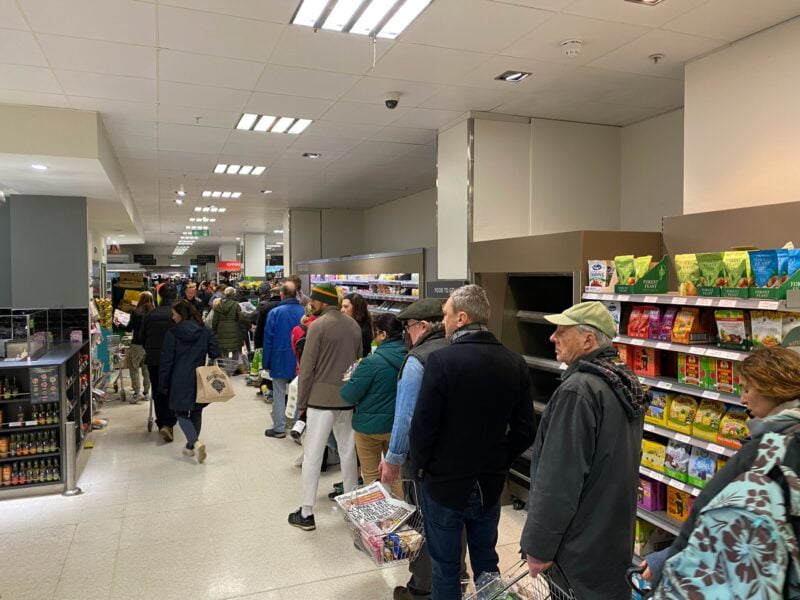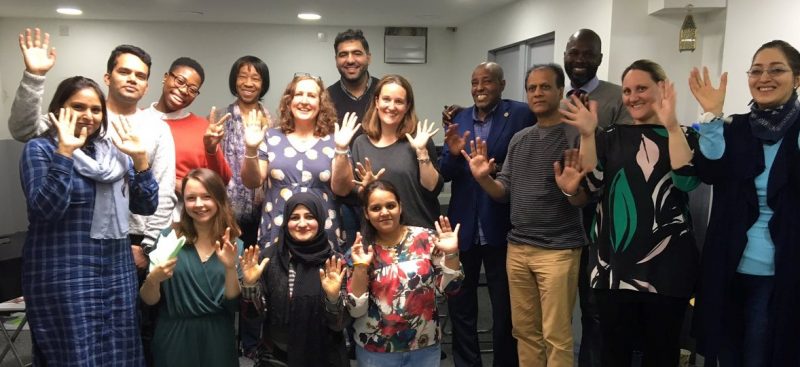The Challenges of Moving Back to Britain

Having recently moved back to the UK after living in the US for the last 2 and a half years and several countries before that, I found the transition back to British life more difficult than I anticipated.
Reflecting on my journey over the last 6 months, I couldn’t help but wonder about those in a similar position who have relocated to the UK, but do not have any experience of British culture, no British roots and language barriers. My family and I have faced many challenges over the last 6 months, and new challenges continue to pop up even after all the hard work we have put in to adjust and settle. I wanted to write this blog entry to show you some of the difficulties that occur when moving countries, and that these experiences are unavoidable, even to someone who is native British and fluent in English.
As the British national, my family were relying on me and my expertise on British culture to solve these problems for them, but I found myself overwhelmed with problems that I struggled to fix.
Settling in a new place is not a simple task, and your to-do list gets larger with each item you manage to tick off. For example, signing up to a new doctor’s surgery was high on our priorities list when we moved, especially since we have a (then) 10-month-old child. Registering myself was fairly straightforward (once I had located my NHS number online). However, for my husband and daughter, it was a long process of applying for an NHS number, waiting for our first utility bills to come through to use as proof of address, providing numerous IDs and documents to prove rights to live in the UK and having foreign birth certificates and medical histories analysed.
each item you manage to tick off. For example, signing up to a new doctor’s surgery was high on our priorities list when we moved, especially since we have a (then) 10-month-old child. Registering myself was fairly straightforward (once I had located my NHS number online). However, for my husband and daughter, it was a long process of applying for an NHS number, waiting for our first utility bills to come through to use as proof of address, providing numerous IDs and documents to prove rights to live in the UK and having foreign birth certificates and medical histories analysed.
This whole process took us approximately 2 months. Thankfully neither of them had any health conditions that required them to see a doctor during that time as it would have been difficult to get them care. Additionally, for my daughter, because of her age, she was expected to have health visitor visits and vaccinations but because she didn’t have a “red book”, and we were unable to get her one, we couldn’t even get her on the register until after her first birthday, when it was too late.
I found that even when I was able to solve one problem, and overcome one hurdle, it shed light on a new one that somehow caused an even bigger battle. As the British national, my family were relying on me and my expertise on British culture to solve these problems for them, but I found myself overwhelmed with problems that I struggled to fix.
Imagine if I were unable to speak English, what chance would I have? How would I provide my family with necessities like access to healthcare? I am very thankful for the NHS and all it does for our society, but accessing the system is not as straightforward as one would imagine. It would have been easy to give up and just hope that no one gets sick, as I imagine some people living here in the UK, have been forced to do.
Expressions such as “spend a penny” or “under the weather” cannot be worked out through logic or context. So, for non-British people living in the UK, it can cause confidence issues with talking to people or making connections with others.
Another challenge that we continue to face is holding simple conversations and making friends.  After living abroad for multiple years, I have become out of touch with British idioms, expressions and slang. British people are far less literal than other cultures and unless you are regularly exposed to these sayings, it can be difficult to connect with people or even engage in small talk.
After living abroad for multiple years, I have become out of touch with British idioms, expressions and slang. British people are far less literal than other cultures and unless you are regularly exposed to these sayings, it can be difficult to connect with people or even engage in small talk.
When I converse with my husband, I do not use British expressions because he quite simply doesn’t understand them, and I do not want to keep explaining what I mean. But doing this has meant that he never learned these expressions, and I have forgotten what a lot of them are. Even though his first language is English, he often has to whisper to me asking for an explanation when we engage in polite chit chat with neighbours, strangers or professionals. This is something that has been to be a particular struggle for him and a significant barrier to feeling settled or at home in the UK.
Expressions such as “spend a penny” or “under the weather” cannot be worked out through logic or context. So, for non-British people living in the UK, it can cause confidence issues with talking to people or making connections with others. My husband is yet to make a single friend since living here, and although he insists that he is ok with this and that his focus is on our family, I am certain that it is negatively impacting his mental health. This could well be the same for a lot of non-British residents, isolating themselves and feeling lonely.
It can be really difficult to take the first step to reach out to someone, but imagine the impact it could have on that person. Simple conversation, and the patience to explain expressions / sayings, could make a world of difference to anyone, not just immigrants.
This is one of the reasons programmes like Café Connect and Creative English are so important in creating spaces that help people make friends and navigate the language, social and system challenges that they face.
Moving back to the UK has had its perks and I don’t want to portray that it has been an entirely bad experience. But I do want to highlight that some things which seem straightforward, can be huge barriers to happiness, security and being settled. It is true when people say that you never really know what struggles another person has to deal with.
For those who are not from the UK, they have the same problems as everyone, but the additional struggles of being unable to navigate everyday life. For my family, I am confident that most of these struggles will be solved in time, and I can only hope that for other migrant individuals or families, that they are able to find the support that they need. This is one of the reasons programmes like Café Connect and Creative English are so important in creating spaces that help people make friends and navigate the language, social and system challenges that they face.



